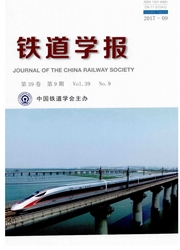

 中文摘要:
中文摘要:
移动IPv6快速切换(FMIPv6)协议通过引入快速移动检测和快速绑定更新过程有效地减小了切换延迟,同时通过在接入路由器上建立缓存,减少了数据包的丢失。信令消息的执行顺序对FMIPv6的性能有着极大的影响。在分析FMIPv6时延的基础上,利用给出的改进二维分层网格随机漫步模型,对一次会话持续时间内FMIPv6协议的切换延迟和需要的缓存大小进行了理论计算,并给出数值结果。由结果可见,对于不同的信令交互时序,FMIPv6在切换延迟和需要的缓存等方面具有不同的性能。
 英文摘要:
英文摘要:
The fast Handover for MIPv6 (FMIPv6) protocol reduced the handover latency in MIPv6 when the fast movement detection and fast binding update procedures were introduced. FMIPv6 reduced the packet losses when buffers were set up in the access routers. The performance of FMIPv6 was aggravatedly affected by the transmission time of signals. On the basis of analyzing the latency of FMIPv6, theoretical analysis were made to the handover latency and size of the needed buffer of FMIPv6 in a session duration time with a two-dimension layered mesh random walk model. And finally, The numerical result was obtained. The result indicates that FMIPv6 has different performances for handover latency and needed buffers with different signal timing.
 同期刊论文项目
同期刊论文项目
 同项目期刊论文
同项目期刊论文
 期刊信息
期刊信息
